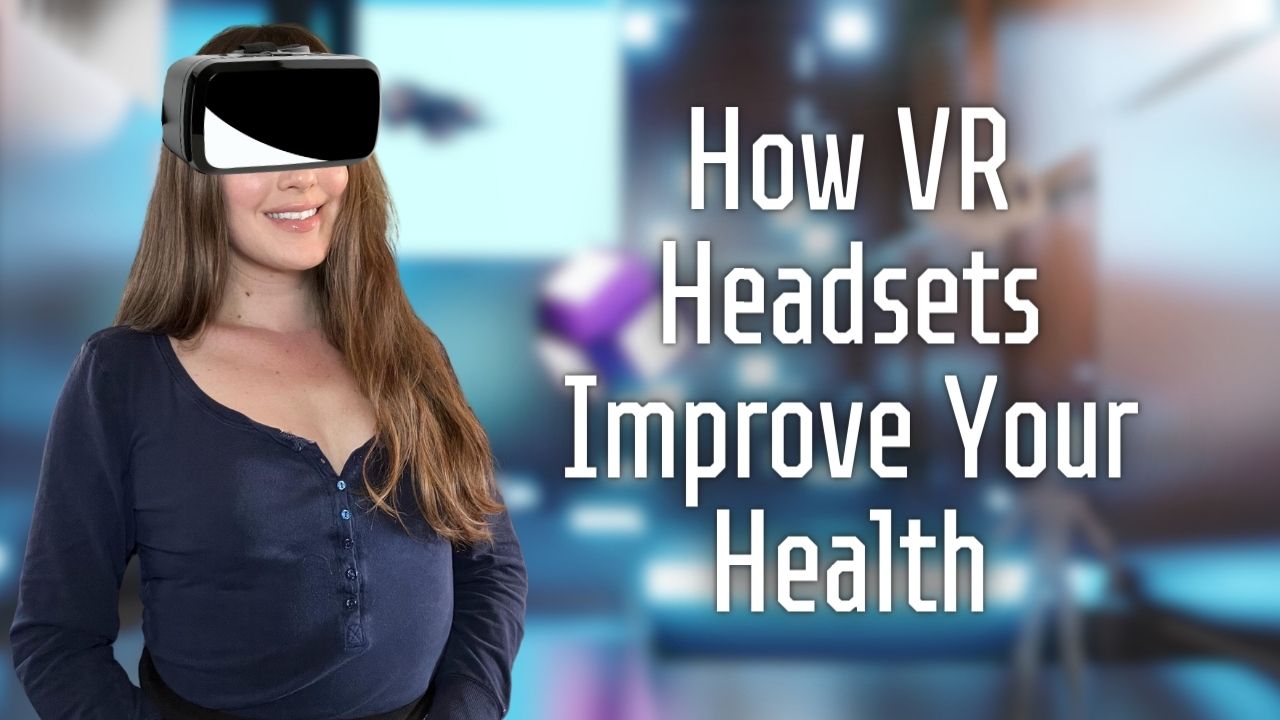
As an Amazon Associate I earn from qualifying purchases.
On the JJ Barnes Blog, I check out research into how VR Headsets can improve your health, and wonder whether I should invest in one!

VR Headsets
Let’s face it, the allure of virtual reality (VR) is undeniable. The ability to be transported to fantastical worlds, conquer epic challenges, or even scale Mount Everest (virtually, of course) has captured our imaginations for years. But lately, I’ve been hearing whispers of something even more intriguing: VR as a tool for health and well-being.
Apparently, these immersive headsets aren’t just for gamers anymore. Research suggests VR can hold the key to everything from pain management to phobia reduction, and even exercise motivation.
Intrigued (and maybe a touch skeptical), I decided to delve deeper into this world of virtual health. Could a VR headset become my secret weapon in the quest for a healthier lifestyle? Join me as we explore the fascinating science behind VR and its potential to revolutionize how we approach health and fitness.
Perhaps, by the end of this journey, I’ll be ready to invest in my own virtual reality escape – or maybe I’ll discover the truth is far too fantastical to be real. Either way, this exploration promises to be an eye-opening (or should I say, virtual eye-opening?) adventure!
To help me out, online gaming information site Indivisible Game has sent over research into the ways that VR headsets can bring physical and mental benefits to players.
When enjoyed in moderation, VR headsets and gaming experiences provide various physical and mental benefits to players all over the globe. It is recommended to spend no more than 15 minutes at a time using a VR headset, ensuring you set boundaries to limit play and enjoy real-life experiences.
While VR headsets do pose various risks like injuries from your surroundings, motion sickness, and eye strain, this technology has also proved useful in recreational, educational, and medical settings.
-A spokesperson from Indivisible Game
How VR Headsets Improve Your Health
VR for chronic pain relief
While gaming of any capacity can immerse the player in various captivating worlds, VR gaming can provide gamers with the most immersive experience possible.
A report from the Virtual Reality Medical Institute found that these virtual environments crafted in games and entertainment experiences can help relieve chronic pain, drawing attention away from your brain and reducing the amount of conscious pain you experience. VR has been adopted by many hospitals to help ease the pain of patients who have recently undergone surgery, given birth, or been through cancer treatment.
VR for burning calories
Virtual reality has ushered in a new way of gaming that allows players to be more physically active when playing some of their favourite titles. Rather than sitting on the sofa for a gaming session, VR headsets encourage gamers to be active, using their body and motion controls to explore various virtual locations.
Data from the VR Health Institute revealed players can burn up to 13 calories per minute playing VR games, depending on your weight and the extent of movement.
VR for social isolation and anxiety
While spending too much time wearing a VR headset can certainly result in headaches, eye strain, and even motion sickness, VR gaming can provide a plethora of mental health benefits to gamers. The immersive nature of these devices can even reduce levels of depression and social isolation.
A scientific report conducted during the COVID-19 pandemic found that virtual reality experiences were effective in reducing ’lockdown loneliness’ and supporting people who struggle with social isolation, depression, and social anxiety.
VR for phobias
Medical professionals have successfully adopted VR technology as a tool to help tackle and reduce phobias. Patients can be exposed to some of their greatest fears (spiders, crowded spaces, heights, etc.) in a safe, controlled environment.
While this immersive exposure therapy is authentic enough to work as a treatment, the awareness that this is a virtual space allows participants to feel comfortable taking on their fears. The scope of VR means a wide variety of phobias can be gradually introduced to patients, providing them with coping mechanisms to tackle their phobias in real life.
VR for motor skills and cognitive abilities
Popular VR games like Beat Saber not only serve as a form of physical exercise, they can also provide excellent mental stimulation for adults and children alike. Benefits include improved focus, enhanced cognitive abilities, and better memory. Games like these encourage players to problem-solve, memorize patterns, and stay attentive, keeping your mind more alert and active.
Conclusion
So, after diving into the world of VR health applications, the verdict is in: VR holds immense promise for the future of well-being. From pain management and physical therapy to phobia reduction and even exercise motivation, VR offers a unique and engaging approach to healthcare.
However, it’s important to remember that VR is still a developing technology. While research is ongoing and the results are encouraging, more studies are needed to fully understand the long-term impact of VR on health. Additionally, VR headsets can be a significant investment, and content specifically designed for health purposes might still be limited.

Amazon and the Amazon logo are trademarks of Amazon.com, Inc, or its affiliates.









